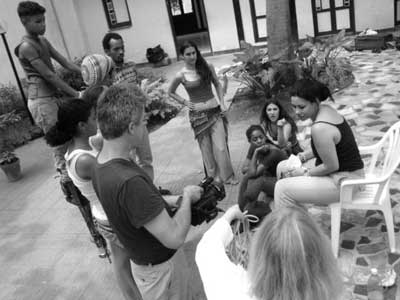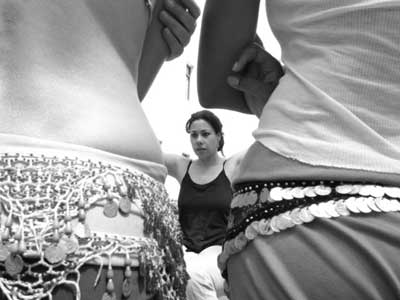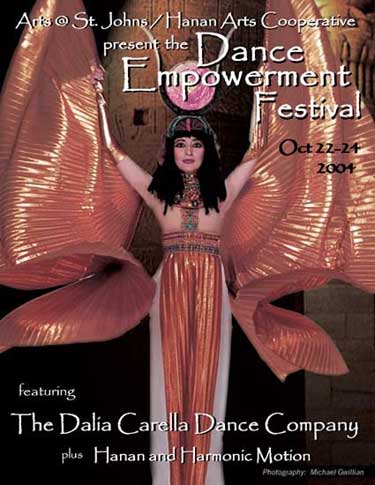Projects and Collaborations |
Synopsis: In 2003, Tiffany Madara a.k.a. “hanan,” enraged her Cuban family in Miami by getting on a plane to Havana to participate in an artistic exchange that led to the formation of Cuba’s first Arabic dance troupe: Grupo Aisha Al-Hanan. The troupe, founded by hanan was composed of eight women at the University of Havana’s History Department. A live band of musicians shortly followed from Havana’s colorful and diverse music scene. Guided by hanan, Group Aisha Al-Hanan quickly gained notoriety around Cuba despite its departure from state-sanctioned culture and art models. A grassroots cultural movement ensued, which had a profound impact on many lives across the globe. For hanan’s family, her returning to Cuba was like an act of support for the Communist Revolution that drove them from their island to Miami. Havana Habibi begins three years later following hanan’s visit to Havana for the International Dance Festival and workshops with Grupo Aisha Al-Hanan. We meet the ensemble and see the sacrifices they make to create their art: Ana has to take a two hour commute to get to rehearsals Aissa battles financial straits and must forgo a bigger paycheck dancing cabaret salsa to dance with Aisha. Hanan confronts personal demons, crumbling health and family dissonance to teach in Havana. We hear how bellydance has impacted the dancers’ and musicians’ lives and empowered them as people. Havana Habibi looks at the cross cultural exchange and intermigration between Africa, Cuba, Spain and the USA; what it means to be a Cuban Bellydancer in Revolutionary Cuba as well as the Cuban Diaspora and travels throughout time, geography and space to tell the human story behind Revolution and geo-political Identity through the sensual metaphor of Bellydance. Habibi Buy tickets online at: |
The Bellydance Cuba Workshop is a humanitarian artistic and cultural exchange created by hanan and the hanan arts cooperative in December 2003. The ongoing "workshop" is a mentoring, training and educational sponsorship of the now renown and unprecedented bellydance troupe in Havana, Cuba named "grupo Aisha al-Hanan". The new troupe is based out of the "Casa de los Arabes" in La Habana Vieja; a museum and mosque dedicated to preserving Arabic culture and history in Cuba, sponsored by the Office of the Historian. To date, the troupe has performed in many festivals, cultural and educational symposiums and for Arabic Embassies throughout Havana. The Bellydance Cuba Workshop is a volunteer based and donation driven project.
Images by PITO
 |
 |
 |
|
 |
|
 |
|
 |
|
 |
|
 |
|
 |
|
10th annual Havana Dance Festival : March 2005
photos: Pito, Habana, Cuba







 |
 |
||
 |
 |
 |
The Dance Empowerment Project is a holistic bellydance course designed by hanan to bring participants to their creative and spiritual core. In addition to learning crisp bellydance technique, dancers participate in creative "unblocking" exercises, arts projects, enjoy artistic "field trips" and artistic exploration. What makes this dance program different is the focus on the internal process of movement and its spiritual significance. Dancers are encouraged to tap into their inner wisdom and begin an inner dialogue not just of movement- but a true relationship with the self. The Dance Empowerment Project's mission is to build the spirit of women through the spirit of bellydance; an artform that is ancient, healing and filled with wisdom.

 |
 |



